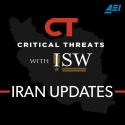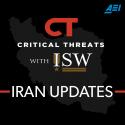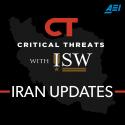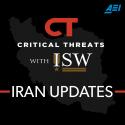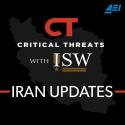Iran Update, March 27, 2023
Mar 27, 2023 - ISW Press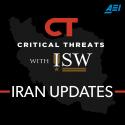
Iran and Lebanese Hezbollah have messaged that the Iran-led Axis of Resistance is prepared to continue escalating against American forces in eastern Syria. Iran uses the term “Axis of Resistance” to refer to the regional state, semi-state, and non-state actors with which Tehran cooperates to pursue its strategic objectives, including the Bashar al Assad regime, Lebanese Hezbollah, and various Iraqi, Syrian, and other proxy groups. The Iranian Advisory Center in Syria—likely a front for the IRGC Quds Force—issued a statement on March 24 warning the US that the Axis of Resistance has “the upper hand” in Syria and can retaliate against any US attacks. Supreme National Security Council (SNSC) Spokesperson Keyvan Khosravi echoed these remarks on March 25. Iranian state media and Lebanese Hezbollah-affiliated outlets have similarly emphasized in recent days that the Axis of Resistance is prepared to attack US forces in eastern Syria if the escalation cycle between them continues. The IRGC and Lebanese Hezbollah are responding to the series of attacks between the US and Iranian-backed forces that erupted in Syria on March 23-24 after Iranian-backed militants conducted a kamikaze drone attack on US forces in northeastern Syria, killing one American.


